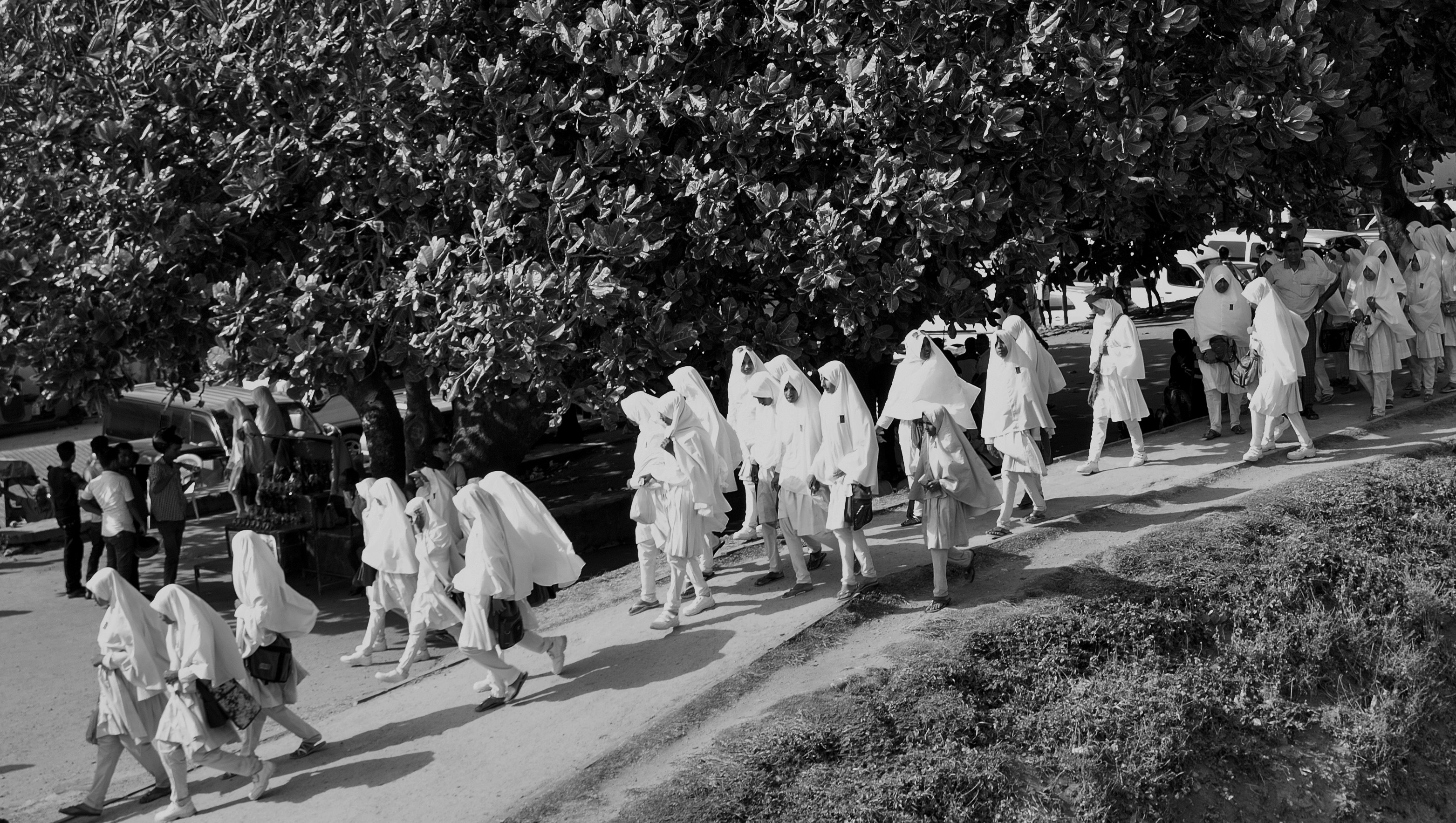Image: A group of Muslim School girls visiting Galle Fort, July 2016. (c)s.deshapriya.
To avoid being married at 17 to a stranger, the Muslim schoolgirl from Sri Lanka’s north-west tried to commit suicide by swallowing a bottle of her mother’s diabetes pills. While she was recovering in hospital, her parents went ahead and registered the marriage.
The union took place under the version of Sri Lanka’s family law that applies only to Muslims. It does not require the bride’s consent and does not specify a minimum age for marriage. Instead, it merely stipulates that children under 12 can only be married with the approval of a quazi, or Muslim family judge. The penal code, helpfully, exempts Muslims from prosecution for statutory rape providing the victim is married to the perpetrator and is 12 or older.
Unions of other Sri Lankans fall under the General Marriage Registration Ordinance, which sets the minimum age at 18. Muslim marriages and divorces, and interfaith ones involving a Muslim, are governed by the Muslim Marriage and Divorce Act, which also permits a man to commit polygamy without the acquiescence or knowledge of other wives he may have. Husbands can get quick divorces without having to offer any explanation. By contrast, a wife endures a long process that requires her to produce witnesses and attend hearings.
The law is administered through courts set up in 1951 “for the Islamic people to conduct their judicial activities according to their customs”. Representation by lawyers is not permitted. Women are barred from being quazis. And quazis routinely order women to keep quiet during proceedings.
Activists have recently begun a vigorous campaign to change the law. They believe that Muslim girls are often forced to leave school to marry. But they admit that gathering data is difficult. Parents or guardians often lie about the age of children they are giving in marriage, says Hasanah Cegu Isadeen, one of the authors of a report on the negative consequences for women of Muslim personal law. Some marriages are not even registered.
The All Ceylon Jamiyyathul Ulama, a union of (male) Islamic scholars, maintains that child marriages are rare. But Ms Cegu Isadeen found that in 22% of marriages registered in 2015 in Kattankudy, a Muslim town in eastern Sri Lanka, the woman was 17 or younger. The previous year, it was 14%.
Some conservative Muslims say the Koran permits child marriage. They insist that Muslims must continue to be exempt from secular family law. A quazi in Colombo told researchers that girls had to be married between 15 and 17 because their “value” decreased as they got older. Some present child marriage as a way to make teenage pregnancy less of a problem.
Opponents of child marriage are divided on how to change all this. One camp wants the government to set 18 as the minimum age of marriage for all Sri Lankans. Another feels that, for reform to be effective, the Muslim community must embrace it. That would mean winning over conservative theologians.
A government committee appointed in 2009 to propose changes to Muslim personal law is trying to do just that. But its chairman, a former supreme-court judge, is struggling to reconcile divergent positions. Proposals that do not enjoy broad consensus will never be implemented, he says.
